- Home
- Kathryn Lasky
Tangled in Time 2 Page 6
Tangled in Time 2 Read online
Page 6
“I want to stay,” Rose said fiercely.
“Of course, of course. She should have her friend here. But I shall be speaking in Spanish.”
“Charlie, I never knew that you knew Spanish,” Rosalinda said. “I’ll leave you two to it now.” With Betty by her side, she left the bedroom.
Rose didn’t understand a word that was spoken. All she saw was that Marisol was beginning to cry. Several times she repeated the words No puedo nada. Finally, Dr. Seeger patted her head. Then he bent over and gave her a light kiss on the top of her head. “Vaya con Dios, Marisol.”
“Gracias, Señor Doctor.”
There was a knock on Rosalinda’s bedroom door. Although Dr. Seeger’s waiflike body could not weigh more than one hundred twenty pounds, he leaned heavily on his cane. He took a deep breath.
“Well?” Rosalinda asked. He took a moment to reply.
“Marisol is what I once was.”
“What, Charlie?”
“Undocumented.”
“Undocumented? What are you talking about?”
“What some people call an illegal alien.”
“She’s a child. She’s a schoolmate of Rose’s.”
Rose’s eyes were going back and forth between her grandmother and the old doctor.
“Yes, and I arrived here—let’s see, when was it?—1948 from Argentina.”
“I thought you were German, a German Jew.”
“I was, but my parents fled Germany just before the war, when I was a baby. They went to South America. Then I came here—undocumented, an alien.” He tossed a glance toward Rose. “I know you kids nowadays think all aliens come from Mars. Not me. Not Marisol.”
“No, I don’t. I know about aliens and illegal immigrants. So that’s what Marisol is?”
“Yes, but it’s much worse for her than it ever was for me. She’s basically a slave in that restaurant Little China. She pays them rent for her bedroom, where she is packed in with nine or ten other women. They take it out of her minuscule salary. She has to pay off the coyote who got her across the US border with Mexico, after a long, long trip from Bolivia.”
“Coyote!” Rose and her grandmother both exclaimed.
“That’s what they call the smugglers who bring them across.”
“How did she get to the border?” Rose asked.
“She mostly walked.” He paused. “Or rode on train tops.”
“What?” Rose gasped.
“She came here to search for her mother. Her mother had left some years before to make money. And she did. She sent it home, but then the money stopped coming. She’s not sure where her mother is. She thought maybe Illinois or Indiana. In any case, if she doesn’t pay off the smugglers, they will take reprisals on the family she left in Bolivia—an aunt, a grandmother, and a younger sister. It’s an impossible situation.”
“Nothing’s impossible,” Rosalinda said fiercely. “Can’t we get her legal status somehow?” This was one of those rare moments when Rosalinda’s mind seemed to crackle with alertness.
“It takes a long time. You have to understand that these immigrants live in a shadow world. They cannot really engage in much of anything, for if she’s discovered they’ll put her in detention.”
“Detention? Like prison?”
“Not quite as bad, but she won’t be able to go to school if she’s in detention. They don’t allow that. And if there is one thing this girl wants, it’s to go to school.”
“Oh dear . . . oh dear.” Rosalinda shook her head. “Well, can’t we just pay off the coyotes and get her papers, a passport, and a blue card?”
“Green card, Gran.”
“Whatever. Can’t we do something?” Rosalinda said.
“You’re going to need a lawyer. Sam Gold is good on this immigrant stuff. He might be your man.”
“Mr. Gold!” Rose said. “You mean Susan Gold’s dad?”
“Yes, I believe his daughter’s name is Susan.”
When Rose got back to her bedroom, Marisol was sleeping peacefully. Rose looked down at her. She was very beautiful. Her brown hair spread across the pillow in lustrous rippling curls like breaking waves on a dark sea. She had come from so far. And yet when she got here, there was nothing except more trouble and coyote smugglers and slavery!
So, thought Rose, Marisol is looking for her mother, and I am looking for my father. At least Marisol’s was in this century and this country. Whereas mine . . .
Chapter 11
Happy Snow Day!
It was close to midnight now. Rose could hear Marisol’s even breathing. It was a comforting sound. Cook had made trays for them and Rose had brought the trays up. Shortly after eating, Marisol had grown sleepy. But before that all she seemed to want to talk about was school. Her favorite class was math. “No words, just numbers and shapes, like in geometry.”
“Me too,” said Rose. But there were so many other things that Rose wanted to ask her. How had she gotten here? Where did she think her mother might be . . . and the coyotes? But she dared not mention any of this. Rose couldn’t sleep. And she couldn’t scrub the memory of that horrible singing snowman from her brain. It was as if he were taunting her in some way—not like the Mean Queens, of course. Their bullying went far beyond taunting. She thought of Tinker Bell tripping Marisol and the time they stole the batteries frorm Myles’s wheelchair. Their special ops mode, as Joe called it. Nobody could equal them. But how had that emergency door on the bus opened for her? If it hadn’t, who knew what would have happened to Marisol. She recalled Gran mentioning that a few years ago a homeless man had been found frozen in Holliday Park, in the “Ruins.” The Ruins were an area in the park that had fake Greek and Roman columns and statues. At least Rose thought they were fake. It was hard to imagine how a real Greek column got from Athens to Indianapolis. But then again, how had she gotten from Indianapolis to sixteenth-century England?
The wind that had scoured the city that day had died down. But the snow kept falling. There would be no school tomorrow, which was Friday. An email also came from Mr. Ross with the word list for next week.
Dear Language Arts Students,
I know you will all enjoy sleeping in tomorrow and probably going sledding at the nearest hill, but if you can spare a moment, you might take a look at the word list for next week. So here it is.
But of course, school lets out for Christmas break on Tuesday, and if this storm keeps up, there might not be school on Monday either. So Merry Christmas and Happy New Year to all. And now here is your word list! Have fun!
Obsolete
Alacrity
Esteem
Ecumenical
Presumptuous
Exasperation
Analogy
Fluorescent
Conundrum
Apartheid
Happy snow day.
Mr. Ross
She got up and went to the window. Although it was a moonless night, the carpet of thick snow provided a canvas for the most lively shadow dance. The shadows of trees cavorted around those of the greenhouse cupolas. She cast a glance at Marisol and then at the clock—one minute before midnight. I’ll only be gone a minute or two in regular time, she thought. But of course it could be a month in that other century, where time slowed. She climbed out of bed and put on her fuzzy slippers and a thick robe. I have to find my father. You understand, don’t you, Marisol?
The greenhouse was crowded with shadows, but there was one that was lost among the others. Lost or perhaps camouflaged. Rosalinda Ashley once again had gone downstairs quite on her own. She was in a far corner of the greenhouse where the moon flowers grew. There was only darkness, a thick, impervious darkness. While vines and seedlings tended to their business of growing and germinating under the coddling glow of grow lights, the moon flowers were left to wait for the brightness of the moon, which had slipped away for this night. There were no grow lights on, no false moon for the moon flowers, just darkness. And buried in that darkness, Rosalinda watched her granddaughte
r, bundled in her robe with a parka over it and a wool hat with earflaps. She came and stood by the graftling. Did she sense it had been created for her? Rose must know by now that the damask roses were special. That they were somehow the symbol for this peculiar family that could pass through these labyrinths of time. Rose of course was a beginner. It was somewhat easier to go to that distant century than to return to the present day. It took a bit of practice. It was more of a meditative experience. One had to train one’s mind. It was actually an art. And one grew increasingly agile with experience. She called it Mastering the Art of the Rose.
Rosalinda watched her granddaughter staring down at the graftling of the rose and thought, She’s leaving me now. A fragile light seemed to envelop Rose and then she merely dissolved like a dewdrop in the morning sun—except there was no dew and no sun. It was pitch black outside.
Rose was standing next to Sara in the choir loft of Westminster Abbey that looked down on the Sanctuary where almost every monarch since 1066 had been crowned. Never a female among them until now. That sucks, Rose thought. The procession had started from the Tower of London, where Mary had been for the past few weeks, preceding the coronation. Rose remembered thinking how it was not at all what she had anticipated. At least not the part that the queen’s entourage was in. The worst part was that when the wind blew in a certain direction, it brought the foul smells of the river. They badly needed a sewage treatment plant. But that would have to wait a few hundred years or so.
“You have your needles and thread, do you?” snapped Jane Dormer, the closest confidante of the queen and highest ranking of her ladies-in-waiting. No detail escaped her. Rose was nearly out of breath, for she had arrived before the procession and run up all the stairs to the choir loft.
“Of course, milady.” Sara curtsied.
If someone had asked Rose to describe her job on this day, October 1, 1553, she would have said she was a kind of EMT, except it wasn’t broken bones that she and Sara were expected to mend, but clothing. If there was a tear, they were there to sew it. If a hem ripped, they had a special kind of glue made from horse hooves to glue it back, which worked surprisingly well. It wasn’t Velcro but very effective nonetheless.
“Thank goodness the oil crisis has been resolved,” Her Ladyship Jane Dormer said. She blew out her cheeks slightly in a gesture of relief. Jane Dormer allowed herself very few gestures or moments of self-expression. She was a handsome young woman, a good twelve or more years younger than her mistress, the queen. But she was a most somber person.
“Oil crisis?” Rose said softly. All she could think of was the Arctic National Wildlife Refuge and that pipeline thing. Dang.
“The oil crisis,” Sara said as Jane Dormer scurried down the stairs.
“Oh that, yes, of course.”
“How could you forget, Rose?”
Indeed, everything had been topsy-turvy a week before the coronation. There was even talk of postponing the event. Holy oils that had been consecrated by the previous kings’ priests were used for coronations. But Mary was suspicious of the oil because those priests were Protestants and she was a Catholic. She couldn’t bear the idea of having such unholy oils on her head. “Heretical oils,” she called them. So they sent to a bishop in Brussels for some truly holy oil. Until it arrived, everyone was—well, as Rose’s gran would say, everyone had their panties in a twist.
“She’s coming. . . . She’s coming!” Sara’s voice boiled with excitement. Rose too was excited. First came the families of the ministers; next came Princess Elizabeth. “There she is,” whispered Rose to Sara, and clutched her elbow.
“Oh, I hope the princess doesn’t make trouble.”
“Why ever would you say that, Sara?”
“You know how she is. There are rumors that she’s been skipping Mass.” Who cares? Rose wanted to say, but refrained. And Sara was right, the queen had spies who checked on these things. But if Elizabeth was here, that meant Franny might be here too. And more important than anything was the notion that her father might have come for this great event. After all, he was the court goldsmith, and there was talk that many of the ministers would most likely be presented with medals and decorations of honor.
Rose and Sara crowded close, toward the very end of the rail of the choir loft. The choir itself had first choice, and there were at least fifty in the choir. They watched as two men in the green and white colors of the Tudor Court now led Mary to each corner of the raised platform, so all could see her before she ascended the few steps to the coronation chair. There was a blast from the court trumpets.
Bishop Gardiner, now the lord chancellor of Mary’s court, began to speak:
“Sirs, here present is Her Majesty, Queen Mary, rightful and undoubted inheritor by the laws of God and man to the Crown. . . .” He blabbed on a bit more while Rose scanned the audience below for any sign of her father. Princess Elizabeth looked slightly bored but had somehow fixed on her face a “smize,” or a half smile that was totally insincere, where only part of one’s face was involved—the eyes but never the mouth. There was Elizabeth, smizing away!
Bishop Gardiner was finishing his speech. “Queen Mary, will you serve at this time and give your wills and assent to the same consecration. . . .”
She nodded and Rose presumed she said yes. There were no mics, of course. But everybody in the audience said, “Yea, yea, yea! God save Queen Mary.” This was when Rose crossed her fingers again. She saw the new queen move toward the altar and then lie facedown with her head on a velvet cushion.
“Jeez, what’s Her Majesty doing now?” Rose whispered to Sara.
“The bishop will bless her now.” The choir was singing a song in Latin. Rose didn’t quite catch the lyrics. Of course, she didn’t quite speak Latin. She wouldn’t start Latin until ninth grade. Then Mary began moving to the side of the altar where her ladies-in-waiting stood.
“Change of robes. I guess it’s all fine, or we would have been called down by now,” Sara whispered. When Mary returned to the altar, the crimson velvet robe had been removed and she wore a kirtle of purple velvet. The service went on and on. She was kneeling, rising, lying facedown, then up again. A sort of coronation aerobics class. The bishop poured some oil on the queen’s shoulders. Another costume change. Then she walked across the stage in her robes of state. And at this time she received her symbols of power: the sword, the scepter, and the orbs that looked like miniature globes on a cross. Basically in Rose’s mind these ornaments all said one thing: Power with a capital P. It was then she caught sight of her father. He was there in the shadows. There was another blast of the trumpets as the bishop placed the crown on Mary’s head, the imperial crown of the realm.
Rose craned to see her father. She didn’t give twiddle sticks about this queen. But her father seemed to have dissolved deeper into the shadows.
“Where’d he go?” She turned around to Sara.
“Where’d who go?”
“That man—the goldsmith.”
“How should I know? I was watching the queen. Weren’t you?”
“Yeah, of course. But I just caught sight of him.”
“Him? You mean Nicholas Oliver.” Just hearing her father’s name spoken aloud gave Rose a deep thrill.
“Yes—him. I . . . I was just wondering.”
“Well, he was around, I think, because there were certain problems fitting the crown to a woman’s head. I mean, this is the first queen in the history of England. You know they want it to fit comfortably and not squash her hair.”
“Yes, yes, I suppose that makes sense.”
Chapter 12
The Art of Smugness
But nothing made sense. Or perhaps the only thing that did make sense for Rose was to see her dad again. He was here someplace. She looked down from the choir loft. The ceremony was over. Mary had risen from the throne, and with the crimson mantle re-placed over her shoulders, she swept out of the Abbey, twirling the brightly polished diamond-studded scepter. The scepter now caught
the random shafts of light that fell through the stained-glass windows. A light sword of sorts. But Queen Mary was no Jedi warrior. No way. She looked more like a baton twirler at some high school football game. Her face was almost joyful, but it was spoiled by a tincture of smugness. It was the facial equivalent of milk gone sour.
Now it was on to the banquet hall, where more than one thousand people were seated according to rank. Rose and Sara were not at a table at all, but once again tucked away in a backstage area separated by a screen, where the jesters and fools kept their costumes and props for the entertainment. The jesters and fools sat on stools while awaiting their turn to entertain.
Rose spied Jane the Bald. Her head was painted gold. She pranced over.
“Oh! Jane, your head!” Rose gasped.
“Yes, dearie, I’m an orb! Like the one Her Majesty carries, and over there is the scepter.” She pointed to a man on stilts. The stilts and the man were also painted gold. “We do a little dance together when the merriment begins. Can’t get too close to the torches, though. We’ll burn up.”
“Burn up?” Rose said with alarm.
“Yes, this gold paint can catch fire.”
“They should have laws about that. Are there no safety laws?”
Both Jane and Sara turned toward her with looks of dismay. “What in the world are you talking about?” Sara asked.
“Uh . . . er . . . well, I just think that there should be laws protecting people from such dangers.”
Jane sighed and raised her eyebrows high so that her golden orb of a head wrinkled. “There will be laws soon enough, and God forbid they are transgressed. The fires will come.” A dread began to curdle deep within Rose’s stomach. Jane quickly twirled about and then began a string of cartwheels, cackling away like a chicken gone berserk.
Sara gave a little huff of disapproval.
“What did she mean about laws? Are there new laws?”
“Oh, indeed. The unity laws, some call them.” Sara nodded with grave authority.

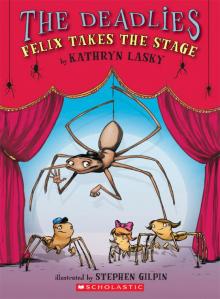 Felix Takes the Stage
Felix Takes the Stage Lucy
Lucy Lone Wolf
Lone Wolf Broken Song
Broken Song The Shattering
The Shattering The Crossing
The Crossing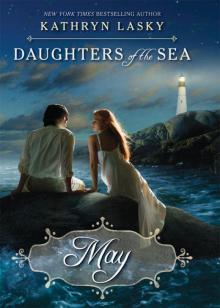 May
May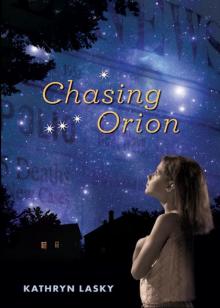 Chasing Orion
Chasing Orion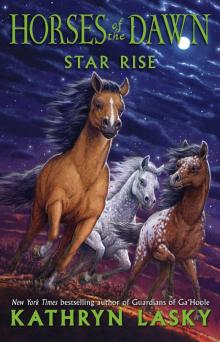 Star Rise
Star Rise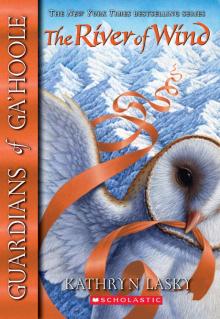 The River of Wind
The River of Wind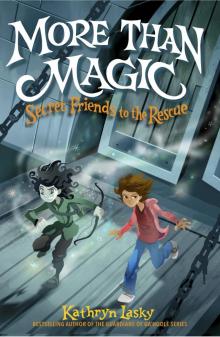 More Than Magic
More Than Magic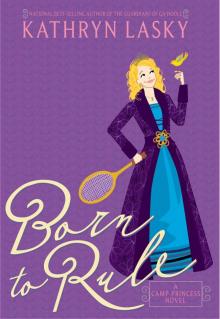 Born to Rule
Born to Rule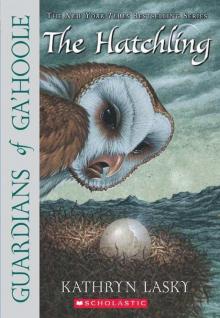 The Hatchling
The Hatchling The Rescue
The Rescue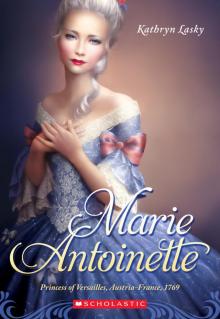 Marie Antoinette: Princess of Versailles, Austria - France, 1769
Marie Antoinette: Princess of Versailles, Austria - France, 1769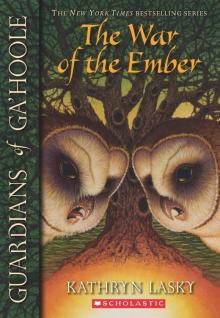 The War of the Ember
The War of the Ember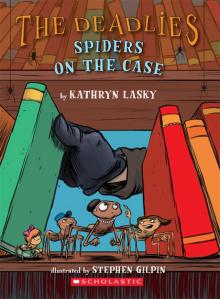 Spiders on the Case
Spiders on the Case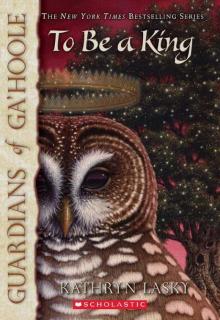 To Be a King
To Be a King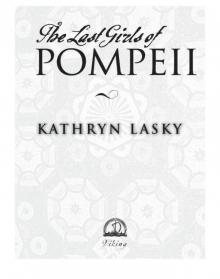 The Last Girls of Pompeii
The Last Girls of Pompeii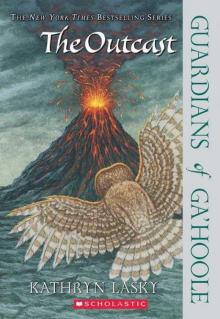 The Outcast
The Outcast Exile
Exile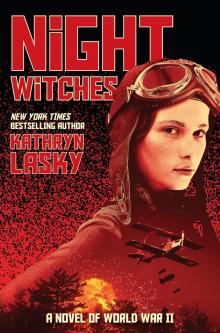 Night Witches
Night Witches Spirit Wolf
Spirit Wolf The Quest of the Cubs
The Quest of the Cubs Frost Wolf
Frost Wolf The Keepers of the Keys
The Keepers of the Keys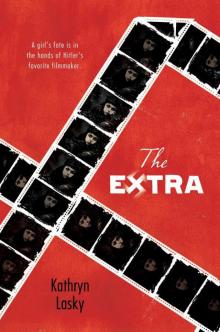 The Extra
The Extra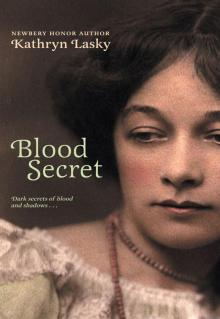 Blood Secret
Blood Secret Watch Wolf
Watch Wolf Blazing West, the Journal of Augustus Pelletier, the Lewis and Clark Expedition
Blazing West, the Journal of Augustus Pelletier, the Lewis and Clark Expedition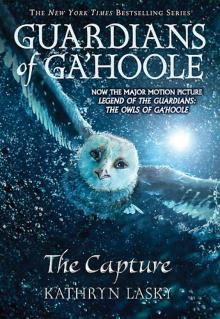 The Capture
The Capture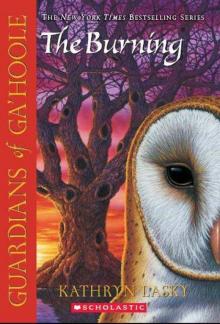 The Burning
The Burning The Journey
The Journey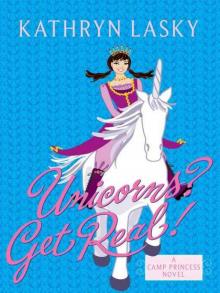 Unicorns? Get Real!
Unicorns? Get Real! The Escape
The Escape Star Wolf
Star Wolf Ashes
Ashes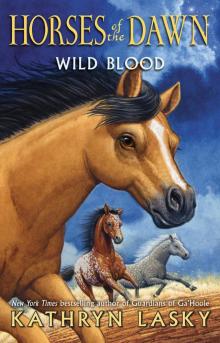 Wild Blood
Wild Blood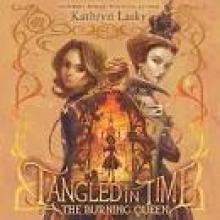 Tangled in Time 2
Tangled in Time 2 The Siege
The Siege Hannah
Hannah Elizabeth
Elizabeth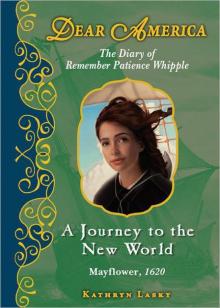 A Journey to the New World
A Journey to the New World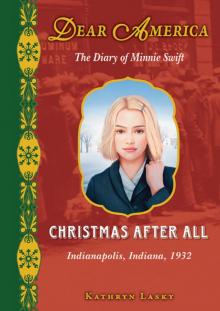 Christmas After All
Christmas After All Mary Queen of Scots
Mary Queen of Scots